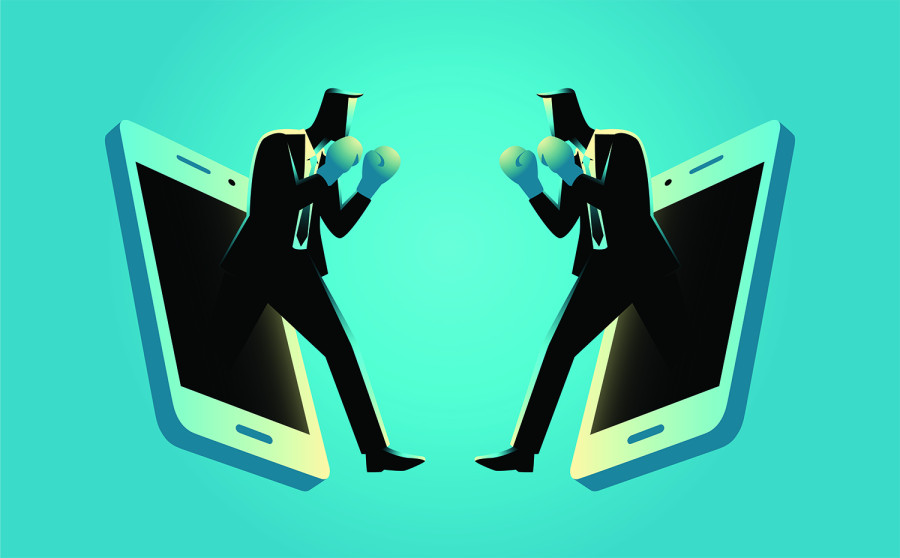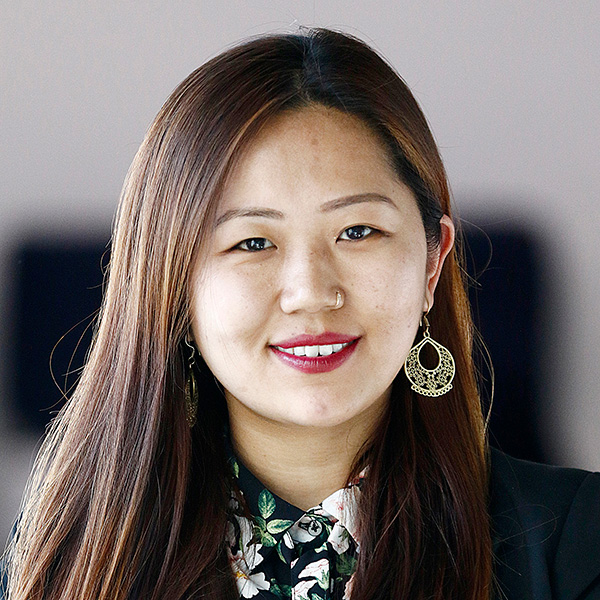Politics
On social media, Nepalis are forever at war
This week, the video of Tourism Minister Yogesh Bhattarai’s entourage delaying a flight, has enraged people on all sides of the aisle.
Bhrikuti Rai
Arguing on the internet, according to someone on the internet, is a lot like playing chess with a pigeon. No matter how skilled you are at the game, the pigeon is going to knock over the pieces, crap on the board, and then strut around like he’s won.
Nepali internet currently looks a lot like that.
More than 48 hours after the altercation inside a Buddha Air flight in Nepalgunj, the Nepali internet remains divided, as warring sides continue to scream at each other with exclamation points and block letters. Some have called out Tourism Minister Yogesh Bhattarai, whose late arrival at the airport on Saturday delayed the Kathmandu-bound flight. Others, including the minister, are weaving wild theories about the person heard screaming at Bhattarai.
But this isn’t the first time Nepali internet has become a battleground for debates, which on most occasions, yield nothing but more outrage and resentment.
Last month, it was about Rabi Lamichhane, a popular television show host detained for his alleged role in abetting suicide of a former colleague. Before that, Nepalis were divided over the arrest of YouTuber Pranesh Gautam. Then there was the Miss Nepal episode. Nepalis have even gone on Twitter wars over a work of fiction.
Political commentators, who until a few years ago used to be key in swaying public opinion about certain issues, feel social media has largely disrupted or replaced the traditional definition of public sphere. And there have been numerous studies, trying to understand the complicated ways in which social media influence political discourse. Discussions have now moved online, but not always for the better, says political columnist Chandra Kishore.
“Social media often divides society on different issues, which is very dangerous,” said Chandra Kishore. “Sometimes, they could even incite communal violence because people tend to react in haste without verifying the facts first.”
In the Buddha Air delay fiasco, too, the rage soon spilt over to the offline world. On Monday, the ruling party NCP’s sister organization and the tourism minister’s personal secretary released furious—and mildly veering on threat—statements condemning the passenger who raised his voice in the plane.
Puranjan Acharya, a political commentator, said even conventional politics has been affected by social media.
“The new trend that we are seeing could be dangerous because opinions, as we see today, are not guided by any ideology,” said Acharya. “It’s a serious issue and it needs serious deliberation.”
Some political analysts say social media, while it can serve as a conduit for information, can also lead to unwarranted conflicts, posing a threat to society.
CK Lal, who has been writing about society and politics for decades, says social media has some distinct characteristics—it demands instant response.
“There is no time for reflection and there is no space for nuances, and it plays in emotions with no reasoning,” said Lal, who also writes regular columns for The Post and its sister-paper Kantipur.
Lal does not mince words when he says social media is inherently anti-democratic and that’s why interest groups could misuse for their benefit.
“Most of the civilisations are based on the integrity of human communications and of trust,” Lal said. “But social media can create echo chambers and corrupt communication, which is a big risk to society.”
While old guards like Chandra Kishore and Lal look at the internet and social media debates and screaming matches as divisive forces, the younger generation of social commentators, most of whom have spent a significant chunk of their personal and public lives on the internet, say the social media wars are simply a reflection of the actual divisions in the society. They’re just no longer limited to kitchen tables and tea shops.
“That’s just the nature of this medium, people will refuse to say they are wrong even when they run out of arguments,” said Sabitri Gautam, a columnist. “Nepal has always been a politically polarized society, the divisions in our homes and among families have simply moved online.”
Tika R Pradhan contributed reporting.




 9.7°C Kathmandu
9.7°C Kathmandu














